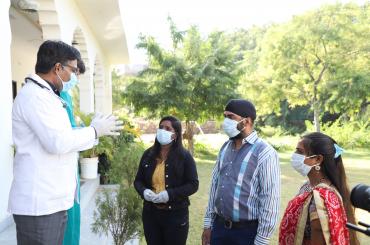
Zambia
-

Leveraging social networks in the fight against infectious diseases
Encouraging tuberculosis patients in India to refer others showing symptoms for testing led to a significant uptick in testing and the identification of new cases
-

Seasonal liquidity, rural labour markets, and agricultural production
Loans allowed low-income households to reallocate labour away from the market and back onto their own farms, and thereby improve their own harvests
-

Do asset transfers build household resilience?
Incorporating a measure of resilience in anti-poverty programmes can help predict poverty dynamics and sustainability
-

Can women find trust in the market?
In markets in Lusaka where chiefs serve as arbiter of contract disputes, women are more likely to trust their male counterparts and to share and cooperate more
-

Gender norms, rule of law, and female entrepreneurship in developing countries
Unless you have both relatively equal gender laws and decent rule of law, female entrepreneurship is very low
-

Negotiating a better future: Experimental evidence from Zambia
Can we increase girls’ educational outcomes through endowing them with negotiation skills?
-

Reducing fertility in sub-Saharan Africa
Why do we still see very high fertility rates in Zambia when women want to have fewer children and are open to the use of contraceptives?
-

What happens when you teach teenage girls negotiation skills?
Training girls in Zambia to negotiate saw them use strategies to secure household resources to stay in school longer, even in the face of poverty
-

Family dynamics and water conservation: Evidence from Zambia
Individuals put less effort into conserving water or energy at home when they share the resulting financial savings with other household members